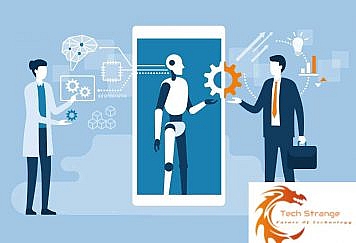As we are more reliant on technology than ever before, we need to be aware of the security threats that can affect us. Cybersecurity is the practice of protecting networks, devices, and data from unauthorized access or criminal use.
This is why businesses, government agencies, and individuals need to take cybersecurity seriously. They all store a lot of sensitive information on their systems, and when it gets stolen, it can be devastating.
Protects Sensitive Information
Cybersecurity is a necessity in the digital age because of the amount of sensitive information that people and businesses store online. This includes everything from:
- communication (emails, social media, apps)
- entertainment (video games, music, streaming services),
- transportation (navigation systems),
- shopping (online credit cards),
- medical data,
- educational data, and more.
This information can be exploited for financial gain, illegal activity, and even terrorist activities. Hackers and cybercriminals are constantly finding ways to steal sensitive data from companies and organizations.
Private companies are more interested in protecting their businesses by ensuring that data is safe. They understand the risks of cyber attacks and are willing to invest in educating their staff about cybersecurity.
The real chronic issue is thought to be the awareness and healthcare sector, as it carries a lot of consequences aside from money-related risk.
Healthcare Data Security
Securing sensitive information and data security in healthcare is critical to protecting patient privacy, preventing fraud and abuse, improving the quality of care, and ensuring public safety. Data breach incidents can have serious consequences for both patients and providers alike.
Patient records can be stolen or altered, leading to identity theft or fraudulent activities. Healthcare providers are also at risk of financial losses due to unauthorized access to patient records.
Stolen information can be used to manipulate and misuse healthcare services, potentially leading to adverse events or even death. By taking proactive steps to secure sensitive information and data security in healthcare, organizations can ensure the safety and privacy of their patients while also protecting their bottom line.
Educational Data Security
Securing sensitive information and data security in educational businesses is vital as it helps protect students, faculty, staff, and the business itself. In an educational setting, there are many types of sensitive data that must be secured such as student records, financial information, research projects, intellectual property, and more.
There are specific trainings created for data security awareness in the educational sector for this reason. By failing to properly secure this data, organizations can be at risk for financial losses, reputational harm, and data breaches.
Data security is also important as it helps to ensure that the student’s educational experience is protected. It prevents third parties from accessing information such as grades, transcripts, or personal contact information. Data security protocols help to protect students from identity theft and other malicious activities.
To protect this data, cybersecurity professionals implement various techniques to protect networks, systems, devices and information from unauthorized access. They also maintain the confidentiality, integrity and availability of this information by implementing access controls and encryption techniques.
Confidentiality refers to the ability of a person to only view the information they are authorized to see. This can be achieved with encryption, two-factor authentication, biometric verification and security tokens.
Integrity refers to the ability of a person or organization to verify that the information they are storing is accurate and trustworthy. This can be accomplished with cryptographic checksums and data backups.
Ultimately, the purpose of cybersecurity is to ensure that the information an organization or individual stores online is safe and accessible to authorized users when needed. This can be done by implementing firewalls, malware detection systems, and intrusion-detection software.
Cybersecurity is a vital field that should be approached with respect and a willingness to learn from others. Cybersecurity leaders work together to address new threats and develop effective strategies for overcoming them. This mutual cooperation is essential for the future of this field.
Protects Against Cyber Attacks
Cybersecurity, the technologies, processes and best practices that protect networks, individual computers, programs and all digital data from attack, is a critical concern in the digital age. With internet access soaring across the globe, greater connectedness between business, finance and individuals, and increasing cybersecurity risks, ensuring the safety of our digital lives will become more essential than ever before.
Cyberattacks occur when hackers gain unauthorized access to computer systems and attempt to manipulate, damage, or steal data in these systems. These attacks can take various forms, including malicious software (malware), a man-in-the-middle attack and ransomware.
One of the most widespread types of cyberattacks is phishing, which involves sending fake emails to victims to steal account credentials and confidential information. Phishing emails typically include links and attachments that download malware onto the user’s device.
Another common type of cyberattack is denial-of-service attacks, which occur when hackers flood a network with traffic to disrupt or disable it. These attacks are commonly used to halt operations of larger entities like businesses and government systems, though they can also affect individuals’ personal devices as well.
Cybercriminals are constantly finding new ways to hack into networks, and these threats evolve rapidly. This means that cybersecurity must always adapt to keep up with the latest threats and prevent new ones from emerging. As a result, it is important to implement a strong security strategy with layers of protection against cyber attacks such as DNS filtering for malware protection, antivirus software for email security and firewalls for added defense against potential threats.
Protects Against Malware
Malware is a hazard that can lead to serious damage to your computer or network. It can corrupt files, steal data, or even take over your system completely. This can impact your business in many ways.
Cybersecurity protects against malware by blocking it before it can enter your network or system. Most malware is detected through antivirus software and antimalware solutions. These software programs use a blocklist, a database of known threats that matches suspicious actions or websites to a list of known malware.
As hackers become more sophisticated, their methods and tools continually evolve to counter new defenses. This has led to a growing arms race between cybersecurity defenders and attackers.
Businesses and individuals store a lot of information on computers, networks and the cloud. A data breach can be devastating for companies, government agencies and individuals. It can cost them money, cause a loss of customer trust, and lead to a drop in stock price.
It also can be costly for individuals, as it can lead to identity theft and financial harm. Depending on the type of information and how it was obtained, a data breach can lead to fines or penalties from the government.
Malware attacks can be devastating for businesses of all sizes. For example, Colonial Pipeline was forced to pay a ransom for its systems to be restored after hackers used a stolen password. This attack sparked gas shortages across the country and major disruption for consumers.
Protects Against Spyware
Spyware is a form of malware that can steal personal information from users. This includes information like passwords, credit card numbers, and email addresses. It can track every keystroke you type on your keyboard and monitor your web browsing activity.
Aside from stealing private data, spyware also can damage your computer. It can cause it to run slower or even crash.
In order to defend against spyware, cybersecurity solutions include firewalls and sandboxing. Firewalls can regulate the traffic that’s sent out on devices, servers, and web applications. They can also block outgoing traffic that’s trying to send data back to hackers. Sandboxing is used to protect against more advanced threats that typically evade antivirus software.
Cybersecurity companies also provide next-generation antivirus software that prevents malware and non-malware attacks, identifies suspicious behavior, and responds to innovative threats. This technology helps to identify patterns of malicious behavior from a wide range of sources and proactively mitigates attacks before they occur.
Protects Against Ransomware
Ransomware is a form of malicious software that encrypts a computer’s data, preventing it from being accessed. It then requests a ransom payment from the victim in order to restore access to their files.
It’s a common way for hackers to make money. This is because they can either resell the stolen data or they can use it to blackmail the victims into paying them.
To prevent this kind of attack from happening, organizations should have a strong authentication layer in place to protect their networks and systems.
Another key to preventing this type of cyberattack is limiting network access. This can be done by implementing firewalls and network segmentation.
Organizations should regularly back up their data. Having a backup system in place can help neutralize a ransomware attack and allow for fast restoration of affected files.
While there are many cybersecurity tools available to protect against these types of attacks, a strong antivirus program that uses machine learning to identify new ransomware variants is an essential part of the solution. It can also detect and block ransomware before it is able to infect an organization’s computers or data.
Protects Against Identity Theft
Cybercrime is a real threat to any person that utilizes the internet. Identity thieves are now able to steal one’s social security number and credit card information with the use of the internet, making this a major problem in our society.
The simplest way to protect yourself is to be aware of your online activities and take precautions. This can be done by regulating your online activity, setting up firewalls and constantly monitoring what you are doing.
Most people are familiar with Social Security numbers and passwords, but it is also important to protect other identifiers. This could include driver’s license numbers, birth dates, addresses and telephone numbers.
This is because a criminal may be able to use this data to obtain a more accurate personal profile and make it easier for them to assume the identity of a victim.
A key aspect of cybersecurity is the ability to detect frauds as soon as they happen, saving you time and money in the long run. This can be done with an identity protection service that will monitor your accounts, credit, and public data for high-risk transactions such as wire transfers, tax refunds, payday loans, utility bills and mobile phone applications.
Cybersecurity helps to protect against fraudulent email scams and phishing attacks that are often used to gain access to an individual’s accounts and personal information. It also helps to protect against malicious software that can attack your computer and reveal PII.
Final Words
Cybersecurity is essential in the digital age. By protecting devices and data from malicious entities, we can ensure that our valuable information is secure, as well as maintain trust with customers and clients.
Taking proactive measures to safeguard against cyber threats will help business owners stay one step ahead of any potential attackers, giving them peace of mind knowing their data is safe. Investing in the right security tools and strategies can help protect an organization from devastating cyberattacks, allowing it to operate without fear of disruption or financial loss.
Cybersecurity should be taken seriously and implemented into all aspects of digital operations. This proactive approach will ensure that businesses are prepared to meet any challenges posed by a malicious actor. With the right precautions in place, organizations can protect themselves and their data from malicious attacks.
Follow TechStrange for more Technology, Business, and Digital Marketing News.





